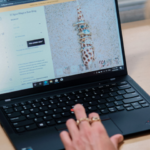How mid-sized organisations are stepping up to responsible business

“We broke it, we own it. That means we’re now responsible not just to our own companies, partners, employees and investors, but to all of society.”
Inspired by Net Positive: How Courageous Companies Thrive By Giving More Than They Take, (Paul Polman and Andrew Winston, December 2021), Rachel Bevans spoke to leaders of small and mid-sized organisations across a variety of industries to understand what responsible business means to them.
Through focused interviews, four key themes arose that responsible business means:
- Creating long-term value for all stakeholders
Responsibility goes across the organisation to create long-term value for all stakeholders including customers, employees and shareholders, partners and suppliers, environment and society as a whole.
Whilst not all organisations are measuring the triple bottom line of people, planet and profit, it is unanimously acknowledged that long-term success is no longer one-dimensional.
- Identifying purpose and values at organisation and individual level
Purpose and values drive strategic direction and responsible business decisions at the individual, team and organisation level.
Whilst purpose and values have been increasing in importance over the last 10 years for organisations, more recent focus on not just alignment but self-awareness of purpose and values at the individual level is building responsible leaders.
- Considering how it impacts customers, brand reputation and trust
Being responsible impacts customers and, as such, provides opportunity or risk to brand reputation and trust.
Customers are expecting organisations to take responsibility and provide products and services that are innately responsible so that it’s easier for customers to do their bit.
Depending on the category, responsibility is not always a motivator for purchase. It can, however, be a barrier to purchase when deciding between two similar brands at point of purchase. And clear lack of responsibility – not paying employees minimum wage, not paying taxes, cooking the books, environmental damage, lack of safety and hygiene – is a turn off and a risk to brand reputation and trust.
- An authentic opportunity to attract, retain and engage employees
A responsible business is a great place to work for employees, trains and trusts employees to be responsible.
Employees are looking to work for responsible organisations. Research indicates that its more of a motivator when choosing to join and stay at a place of employment, than it is for a customer choosing a product or service. In a competitive labour market with the “great resignation” around the corner, the opportunity is for responsible organisations to win over talent with a responsible employer brand, with responsible role model leaders, training and systems that empower and enable employees to be responsible.
Over the next few weeks, we’ll be releasing individual interviews that highlight these aspects so you hear from like-minded leaders on what they and their organisations are doing in this area.
HAVE YOUR SAY:
How is your organisation stepping up to responsible business?
Post a comment on First 5000 – Have your Say on LinkedIn today or email editor@first5000.com.au with your story.
Rachel Bevans is strategist, researcher and business director, with over 28 years’ experience helping organisations become brand-driven, customer-centric and employee-engaged. Rachel founded The Healthy Brand Company in 2012 to unite her brand experience, passion for health and wellbeing and curiosity about what motivates people.








